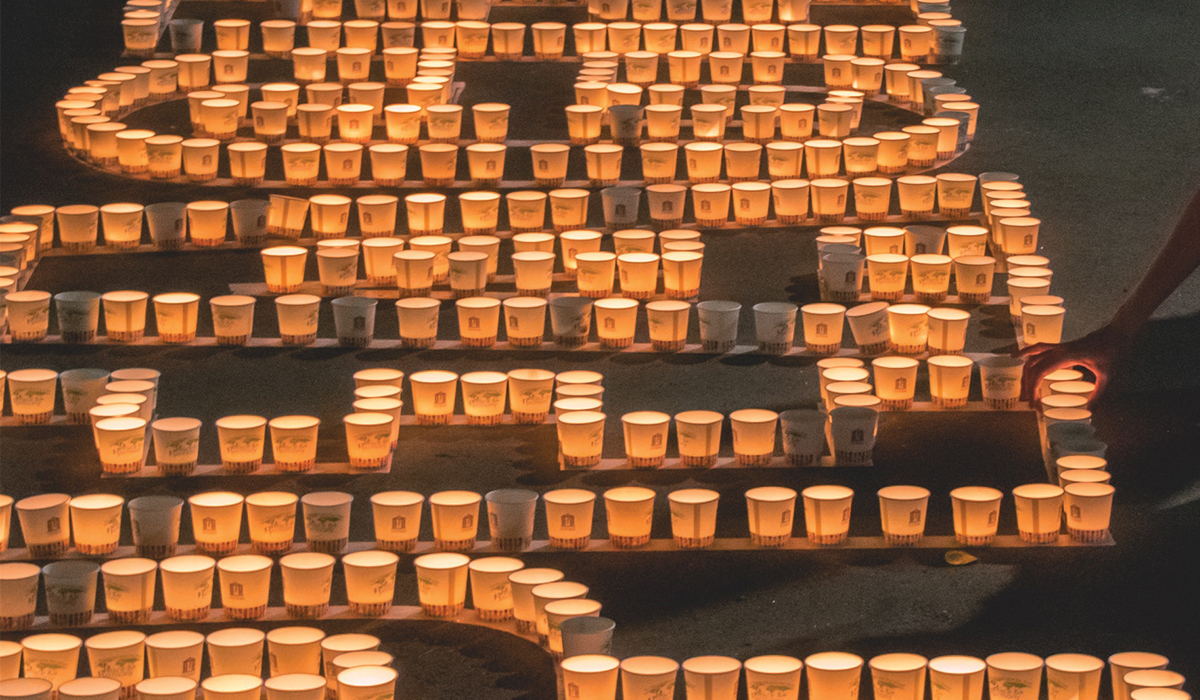Collective Trauma

As a therapist, I commonly spend time working with my clients around trauma they’ve experienced. In my experience, trauma is often addressed from an individualistic standpoint. From this standpoint, it feels more palatable to engage. During my lifetime, however, I’ve seen trauma that’s taken place on a much bigger scale, on familial, neighborhood, church, city, and even societal scales. The recent brutal mass shootings (in Dayton, Ohio and El Paso, Texas) that continue to shake this country are examples of societal trauma taking place. Trauma on these levels is considered to be collective trauma.
Collective trauma can be defined as a traumatic psychological effect that is experienced by a group. This can include family, a church, neighborhoods, a city, a state, an ethnic group, or an entire country. It often includes a cataclysmic event and/or loss of some kind. The initial mark is often, but not limited to, a mass sense of disillusionment, shaken identity, and having to bear the memory collectively.
The impact of collective trauma tends to be expansive in its effect. Many people in my care (clients, leaders, etc.) often speak of traumatic events. Some of them have experienced trauma over a longer period of time while I have some clients who experienced an event that lasted seconds. Nonetheless, I found that those who experienced trauma for a shorter term still had long-lasting effects, just as those who experienced trauma over a longer period of time. If trauma that is experienced for seconds by an individual can have long-lasting effects, how much more would this be the case when it comes to a city, state, country, or even a continent that experiences a traumatic event? Potentially, the effect would leave an intergenerational mark that lasts years, centuries, and lifetimes.
My first thoughts go to specific events such as wars, slavery, genocide, and mass shootings. There are many more on a smaller scale (familial, home theft, natural disasters) but for the sake of this blog, I’ll just linger on the bigger scale. Many of us have experienced collective trauma. There are also those who have been perpetrators of collective trauma. The recent mass shooting in El Paso, Texas comes to mind. Currently, we are still feeling the devastation on a societal scale. One person was able to perpetrate a level of trauma that devastated families, communities, the state of Texas, and us as a country. We will feel the effects for many years to come. Trauma on these scales often leaves us without enough words to communicate the amount of suffering that will take place.
In The Body Keeps The Score, Bessel van der Kolk helps us to understand that when we experience trauma it often shows up in our bodies. For many, including myself, it shows itself in some form of post-traumatic stress. When it comes to a collective structure, how would trauma be experienced? Within the bigger scale, my experience has been that denial, dissociation, disillusionment, and dismissal are a few prominent ways post-traumatic stress shows itself. Often when I experience the effects of trauma in my body, I want to find ways to distract or deny the trauma altogether. In these moments, I’m aware that the trauma feels too much to bear. I want to move away. As a collective example (one of many), my country comes to mind. Over the years, I’ve seen our country wrestle with bearing its history of oppression and marginalization and how it still shapes and marks us to this day. Denial and dismissal I believe have been two ways in which we’ve tried to cope with how devastated our past has left us.
Recently in an interview, Eddie Claude, an African-American professor at Princeton University, named what I believe is a symptom of our collective trauma. He implied that we as a country are not unique in what our history holds, but where we are more unique is in our denial. I suggest that this denial displays the difficulty we have to hold the trauma that is still within us. I believe that this is only one example, but I chose denial because I often experience it as a clear sign of our collective post-traumatic stress. I will speak more in particularity to this in another blog (in the near future), but I see this as an example of how collective trauma shows up in us collectively.
Here at The Allender Center, we continually emphasize the importance of addressing trauma. I’ve stressed this over and over with my clients. Unaddressed trauma often shows itself in re-enactment within our personal relationships. Unaddressed collective trauma, I believe, will also show itself collectively. One of the most difficult parts of my journey through trauma has been having to speak honestly about the particularities of my trauma. I had to enter where I’ve been disillusioned, dismissive, and in denial. Doing so has allowed my heart to finally lament, grieve, and dislodge much shame and contempt (self and other-centered). This felt crucial when it came to my own individual work.
When I think about engaging collective trauma, I consider that everyone in the group, family,
neighborhood, city, or country carries a wound. How the scar manifests itself individually may be different, but nonetheless it’s part of the broader wound. In the context of collective trauma, no one has escaped the effects.
Understanding that everyone bears the scar invites all to consider how the scar is showing up individually within the collective. This inevitably should lead to the burden being born collectively. Further, this potentially opens the door for collective lament, mourning, grieving, and healing. I believe as we grow to understand collective trauma, we will further understand that we are never not part of a collective even though we may play particular roles within it.
